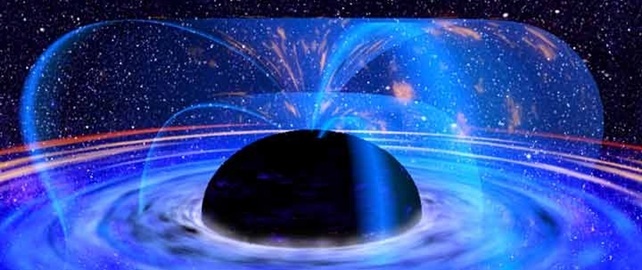Archived_Member16
SPNer
Threats to the Human Species
Almost as long as there has been human existence, there have been theories on how it will end. Which, if any, of these potential threats do you think is most realistic?

by Robert Mann President, Canadian Association of Physicists.
The stars might be beautiful to look at, but their inevitable extinction means trouble for the likes of us earthlings.
Poets might gaze at the stars and ponder their romantic meaning, but over the last century, science has been trying to figure out exactly how tied is the fate of humans to that of the universe. The more we learn about the universe’s destiny, in fact, the clearer the picture we get of our own. And the prognosis is not good.
To the best of our scientific knowledge, T.S. Eliot was onto something: our universe will go out with a very slow whimper, becoming cold, dark, and lifeless.
This bleak image of the future began with Edwin Hubble. In 1929, he observed that all galaxies are receding from ours, the farther ones moving even faster. Hubble’s law has been confirmed by astronomers since, and is expressed well in Einstein's equations, which tell us that space itself is expanding every day. In fact, this expansion of space is one of the key observations supporting the Big Bang theory.
For decades, cosmologists and astronomers expected the expansion to slow down due to the gravitational attraction between the galaxies, just as a ball thrown into the air is attracted back to Earth. But, when it comes to galaxies, is gravity be enough to reverse the expansion?
Evidently not. In 1999 detailed observation indicated that instead of slowing down as predicted the expansion was actually speeding up! Instead of gravity pressing the cosmic brake pedal, something else is slamming the accelerator. Cosmic repulsion between galaxies is getting faster every day.
This driving force, the "something" hastening the expansion of the universe, is called dark energy. Composing 73 per cent of the total energy of the universe, we know very little about dark energy – except that it is antigravitational.
We also know that as time goes on, dark energy will dominate the universe. Eventually all other galaxies will move so far away from our own that they will no longer be visible; their light will not be able to cross the vast expanse of space dark energy has created in between.
In the meantime, the stars in our galaxy will burn out, one by one, before eventually being consumed by the black hole at the galaxy’s centre. Quantum effects will cause this black hole to decay very slowly. Then, after a googol year – a number of years so large that it is written with 1 followed by 100 zeroes – only very cold radiation and perhaps a stray neutrino or two will remain.
No matter how humanity evolves, it will not be able to survive in such an environment. All sources of useable energy will accelerate out of reach as the expansion of space continues to increase. While we might be able to innovate ourselves out of the way of other threats to our existence, this one is inevitable.
This whole process will take a very long time, of course. But not forever. Eventually the cosmic drama will come to a close, and the Earth’s history with it. Science can only go so far in helping us discern the meaning of our place in this universe … before it’s too late.
source:http://www.themarknews.com/series/33-threats-to-the-human-species/articles/2920-cosmic-doom

